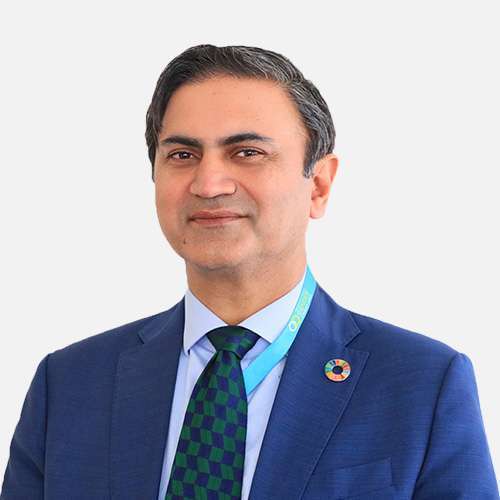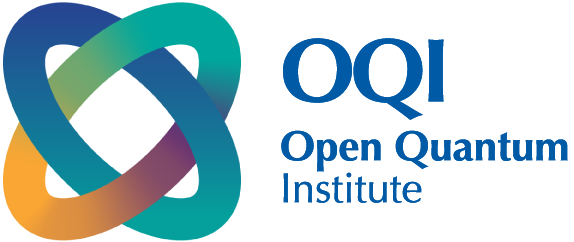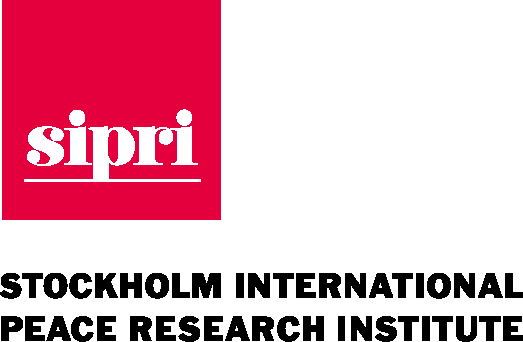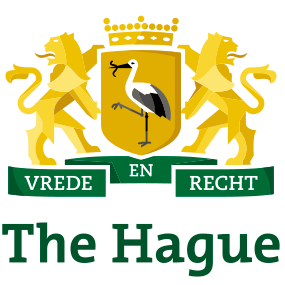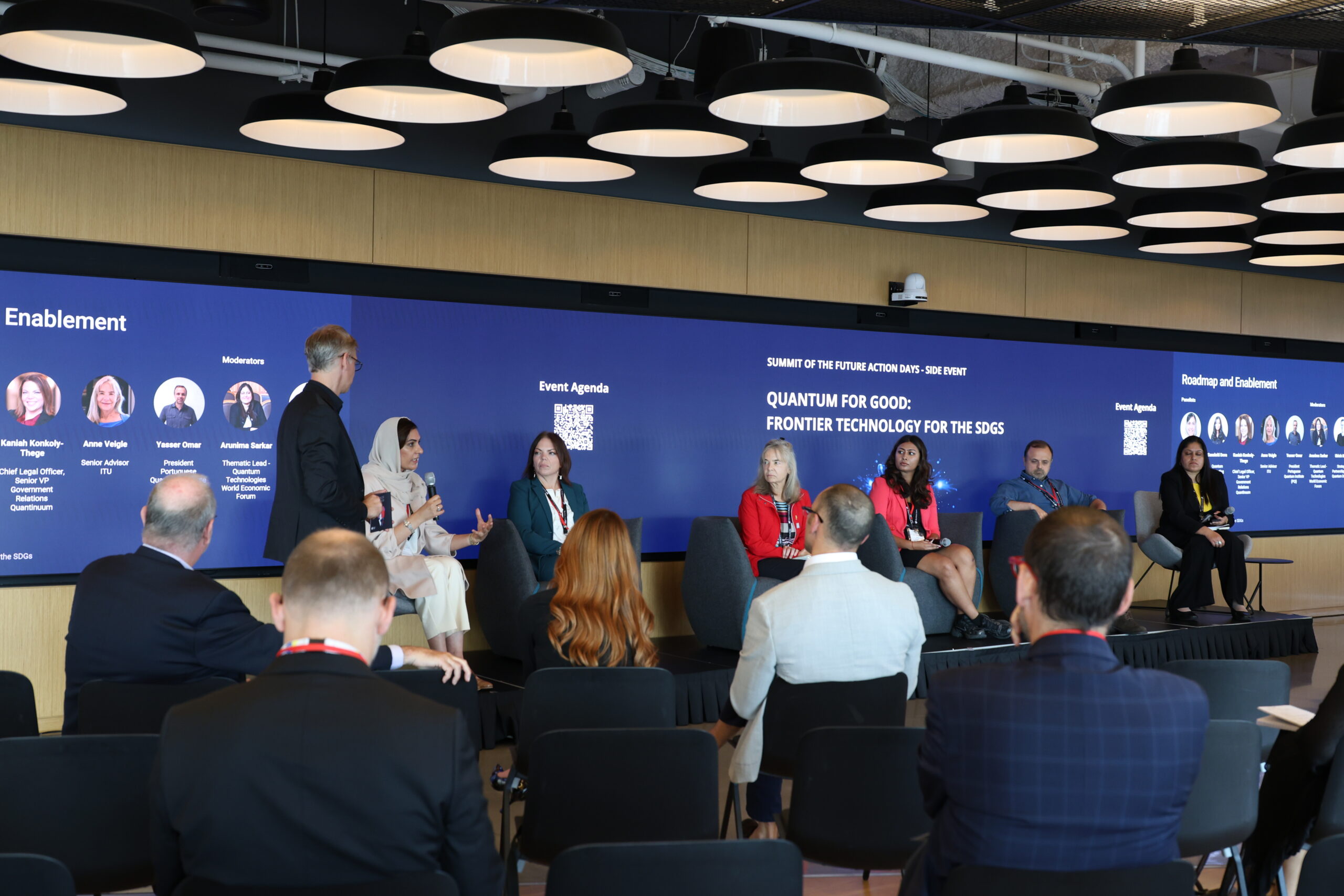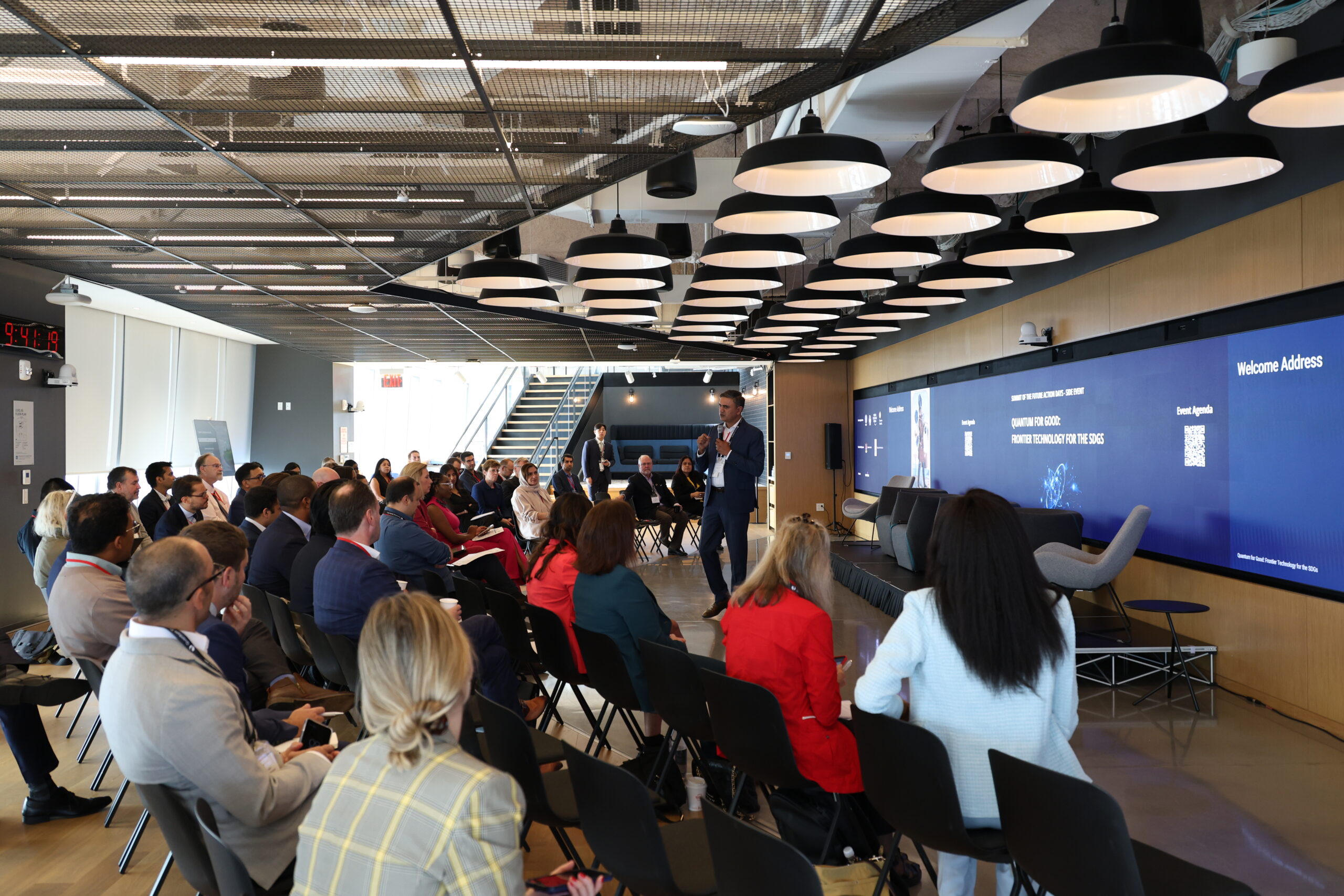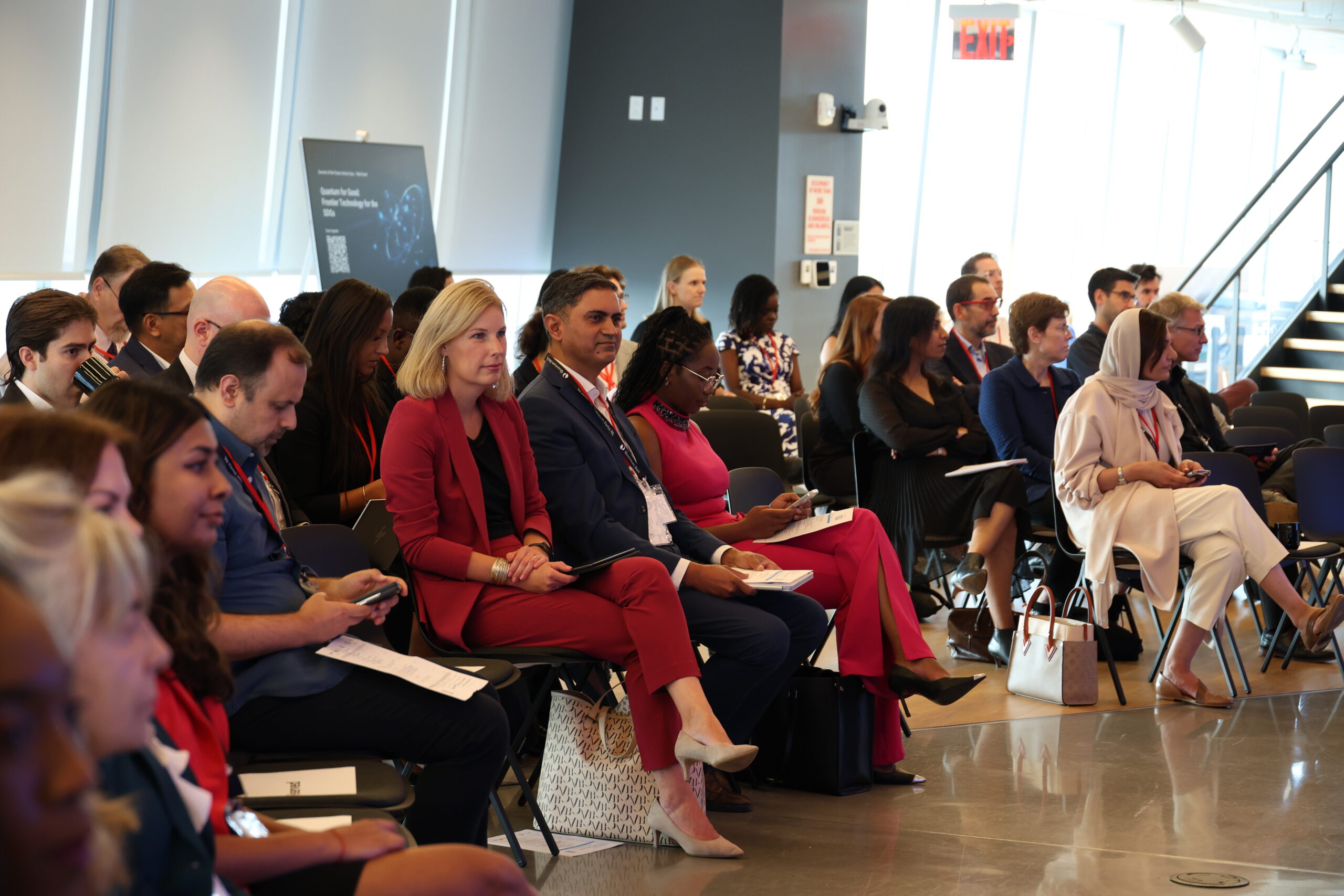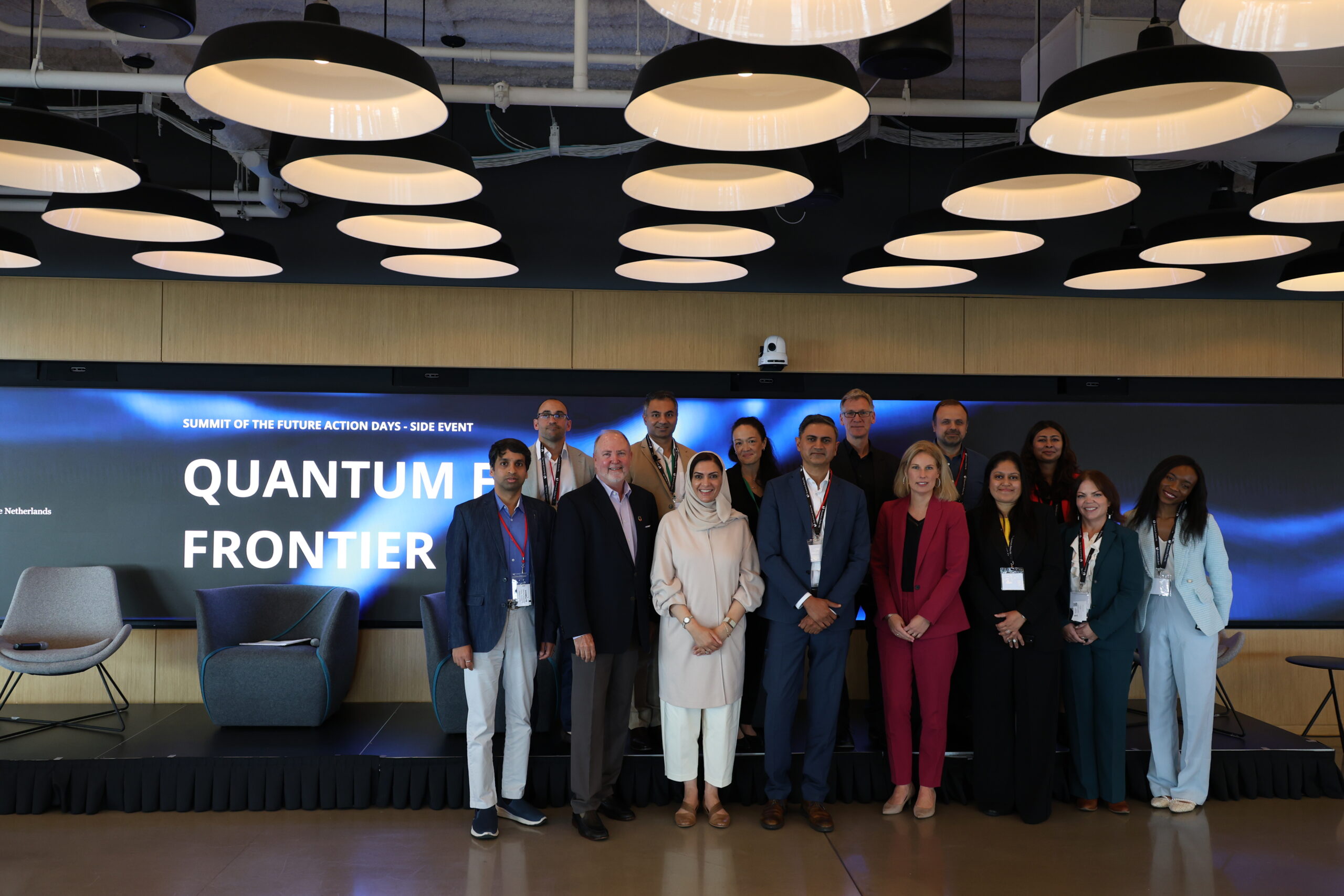
Quantum for Good: Setting the Stage for the International Year of Quantum
Quantum for Good:
Setting the Stage for the International Year of Quantum
Quantum technologies are pushing the boundaries of what we once thought possible. Though still in their early development, their promise has already captivated governments, industry leaders, and private investors worldwide. Quantum computing, communication, and sensing offer transformative potential across various fields, but the journey toward scalable use cases is gradual, marked by extensive research and a growing global collaboration network. As we navigate this emerging landscape, fostering cooperation while addressing digital divides will be essential. The future may still be uncertain, but preparing today for the quantum-enabled world of tomorrow is a leap we can no longer afford to delay.
In this context, the United Nations International Computing Centre (UNICC), the International Telecommunication Union (ITU) and Quantum Delta NL (QDNL) are hosting a two-day conference on “Quantum for Good: Setting the Agenda for the International Year of Quantum” to take place in November 2024 in The Hague, Netherlands. This event will serve as a critical meeting to launch dialogues in advance of the International Year of Quantum Science and Technology (IYQ) in 2025.
In June 2024, the UN General Assembly officially declared 2025 the International Year of Quantum through a resolution co-sponsored by over 70 countries. The IYQ aims “to celebrate the contributions of quantum science to technological progress, raise awareness of its importance to sustainable development, and ensure that all nations have access to quantum education and opportunities.” The IYQ promises to spotlight quantum science and technologies’ relevance across various critical issues to advance the Sustainable Development Goals.
This event will build on the insights from the Quantum for Good: Frontier Technology for the SDGs side event held during the Action Days at the Summit of the Future in September 2024, deepening the exploration of how quantum technologies can drive positive societal and global outcomes. As the world looks to quantum technologies to solve some of its most pressing challenges, this November gathering will also lay the groundwork for a follow-up conference scheduled for late 2025.
Objectives
- Creating awareness: Raising global awareness about the transformative potential of quantum technology for addressing global challenges.
- Building partnerships: Fostering new partnerships between governments, private sector players, academia, and civil society to push forward quantum technology initiatives for public benefit.
- Generating actionable solutions: Encouraging the development of practical, scalable, quantum-based solutions for problems in areas like sustainability, healthcare, and financial security.
- Influencing policy: Educating policymakers to develop supportive frameworks and initiatives that ensure quantum technologies are available inclusively.
This event will catalyze global action on quantum technology, helping ensure it is deployed in ways that directly contribute to the greater good.
Program Overview
The November 2024 conference is designed to set the research, policy, and advocacy agenda for UNICC, QDNL, and a comprehensive group of partners during the International Year of Quantum, culminating in a landmark event in November 2025 to showcase outcomes and results. Across two dynamic days, key players—ranging from government leaders and international organizations to private sector innovators, academic pioneers, and civil society champions—will converge to explore how quantum technologies can be harnessed for the global good. This gathering will emphasize the vital contributions from developing nations, sparking discussions on making quantum technology an inclusive force serving humanity. Together, participants will strategize ways to align quantum advancements with the Sustainable Development Goals (SDGs), ensuring that these cutting-edge technologies contribute meaningfully to equitable, sustainable global progress.
Day 1 – Policy and Governance: The first day of the conference will focus on the high-level political, regulatory, and policy dimensions of quantum technologies. This day will feature keynote addresses and panel discussions with representatives from government, international organizations and related stakeholders. These discussions will explore the opportunities and challenges surrounding quantum technologies, particularly concerning governance, regulation, and equitable global access.
The political discussions will provide a platform for an open dialogue between policymakers from developed and developing countries. Topics will include how quantum regulations can be shaped to benefit all nations, ensuring that developing countries are not left behind in this technological revolution. The aim is to foster a shared understanding of how quantum can drive global public good, moving beyond commercial interests and national advantages.
The day will conclude with a networking dinner, offering an opportunity for colleagues to connect more deeply with key UN system experts, civil society, academic, public and private sector partners around quantum technology. Against a backdrop of shared commitment to advancing quantum technology, attendees will have the opportunity to forge meaningful connections, exchange insights, and explore collaborative possibilities that drive forward the global quantum agenda.
Day 2 – Agenda-Setting Workshops: The second day will consist of focused workshops designed to shape the agenda for the group throughout 2025 (and beyond). The workshops will be led by leaders from the co-hosting organizations, each subgroup either focusing on a specific quantum technology or tackling a specific thematic area.
The workshops will kick off with a brief whole-group session to set the plan for the day. Following this, subgroups will break out into specialized sessions to focus on developing their specific objectives, strategies and plans for 2025. Each group will identify key milestones to achieve by the end of 2025, contributing to the overarching outputs that will be presented at a follow-up conference in November 2025.
After lunch, rapporteurs from each group will present their group’s ideas and next steps in a plenary session, allowing for collective feedback and fine-tuning the agenda for the year ahead.
Key Outcomes
- Establishment of a clear 2025 roadmap for research, policy, and advocacy, with a focus on concrete, practical use cases for the UN system and other international organizations.
- Formation of thematic sub-working groups and definition of the objectives and milestones for each group for 2025, based on the potential value that different quantum technologies can bring to the UN system and other international organizations to address global challenges.
- A platform for continued collaboration among governments, international bodies, and private sector actors, ensuring a focus on inclusivity and equity in quantum technology development.
By integrating actors from the UN system, governments, the private sector, and especially from developing countries, this conference will lay the groundwork for impactful global collaboration in quantum technology. This gathering aims not only to drive groundbreaking advancements but to ensure that the benefits of quantum technology uplift humanity as a whole. As we look to the future, the event aspires to make quantum a catalyst for sustainable, inclusive development, unlocking pathways to a more equitable and resilient world.
Event Details
Date & Time
20 November 2024, 13:00-18:00
21 November 2024, 08:45-17:00
Keynote Speakers
Panelists

Andres Barreneche
Economist & Policy Analyst, OECD
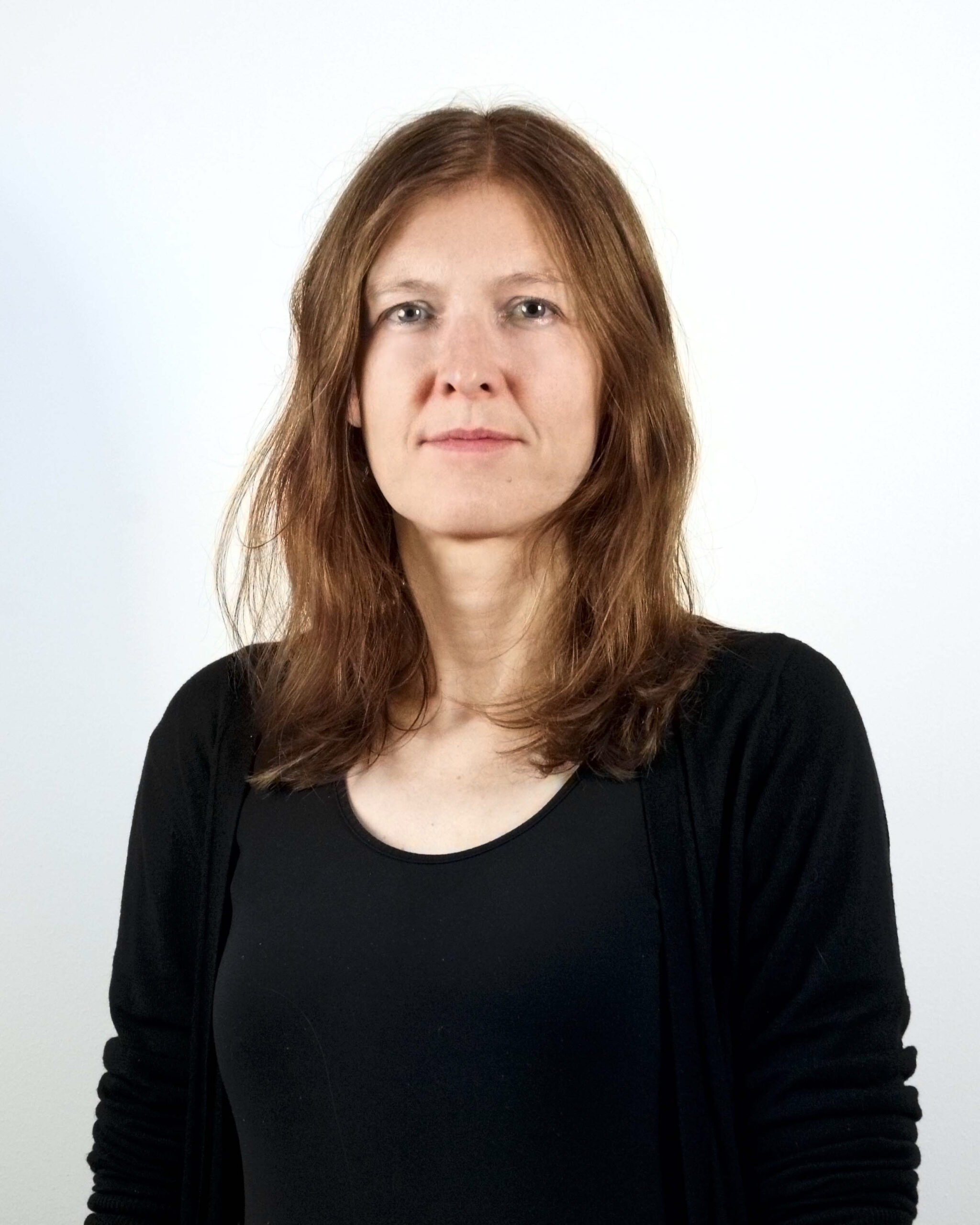
Sibylle Bauer
Director of Studies, Armament and Disarmament, SIPRI

Caiseal Beardow
Design Researcher & Creative Technologist, Delft University of Technology

Alexander Blanchard
Senior Researcher in AI Governance, SIPRI
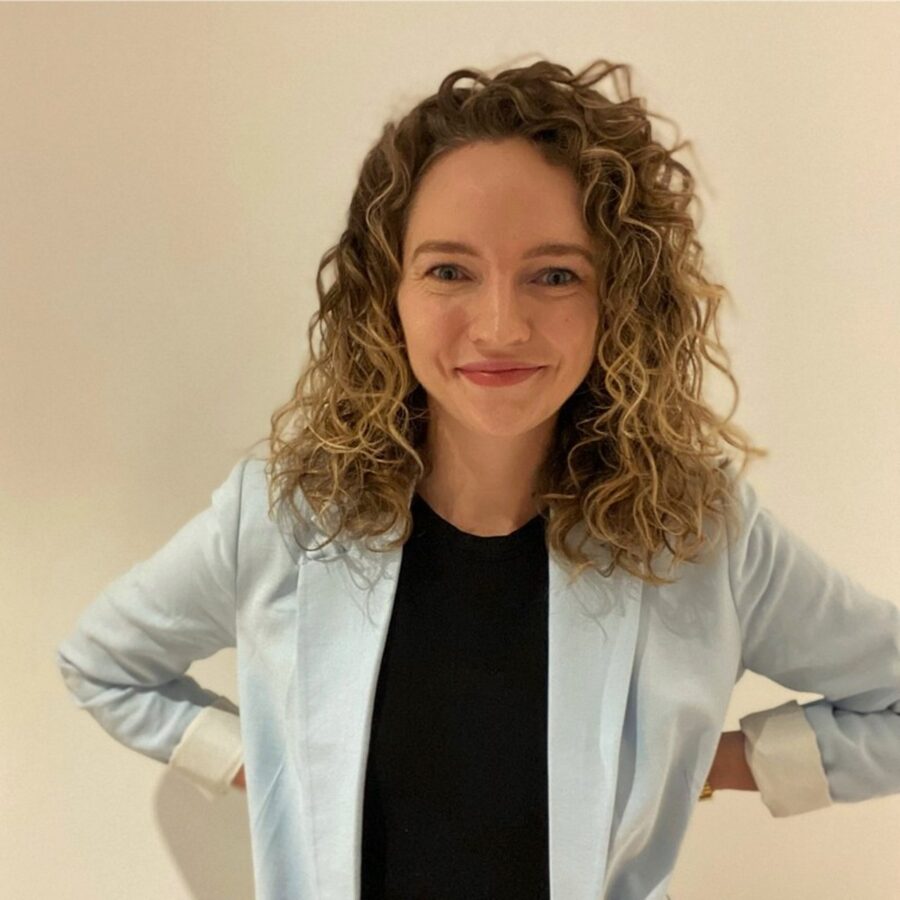
Gretchen Bueermann
Emerging Tech Policy, ITU

Simon Cramer
Quantum Application, TNO

Diederick Croese
Director, Centre for Quantum and Society, Quantum Delta NL

Sanskriti Deva
Quantum Computing Innovator

Stéphane Duguin
CEO
Cyberpeace Institute

Martin Gastal
Partnership and Engagement Lead
OQI, CERN

William Gonzalez
Tech Innovation Manager, WFP

Peter Hotchkiss
Science Policy Adviser
OPCW

Hlekiwe Kachali
Senior Adviser to CIO, UNICEF

Andreas Klemmer
Deputy Director, Turin School of Development, ITC of the ILO

Prince Osei
Director, Quantum Leap Africa

Laurent Querella
Data Scientist & AI/ML Engineer
QClavis.io
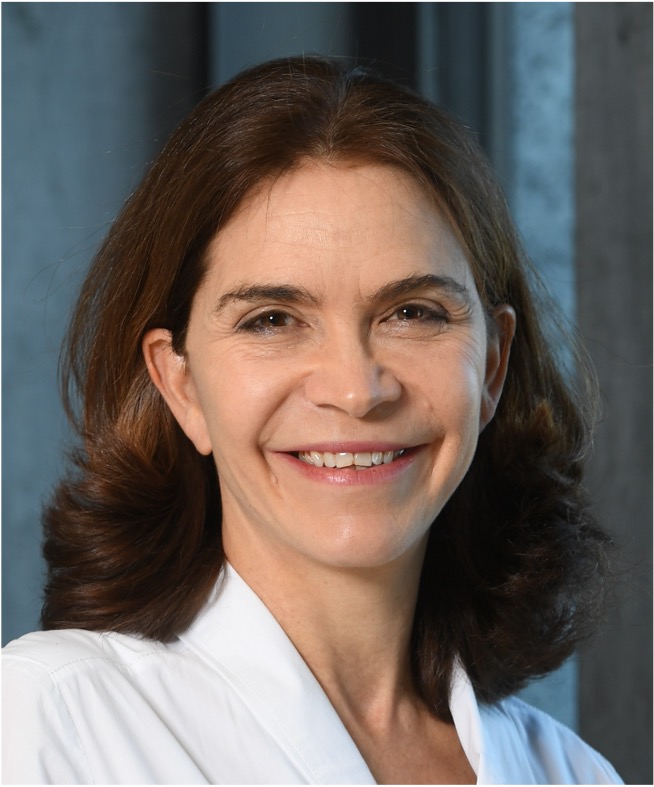
Kelly Richdale
Senior Advisor
Sandbox AQ

Clare Shelley-Egan
Associate Professor, Delft University of Technology

Ariana Torres
Advisor and Project Manager Quantum Computing, SURF

Fabio Maggiore
Chief Security Information Officer, UNICC
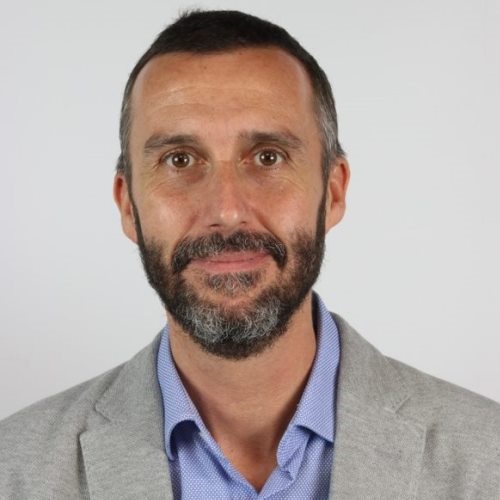
Antonio Vezzani
Economic Affairs Officer, UNCTAD

Dr. Mira Wolf-Bauwens
Responsible Quantum Computing Lead, IBM
Hosted by
The United Nations International Computing Centre (UNICC) is the UN’s largest strategic partner providing common, trusted, and cybersecure digital foundations for the entire UN system. Through state-of-the-art ICT infrastructure, digital tools, cybersecurity services, and data and artificial intelligence solutions, UNICC promotes progress toward a more connected, secure, and sustainable UN.
The International Telecommunication Union (ITU) is the United Nations specialized agency for information and communication technologies (ICTs), driving innovation in ICTs together with 194 Member States and a membership of over 1,000 companies, universities, and international and regional organizations. Established in 1865, we are the intergovernmental body responsible for coordinating the shared global use of the radio spectrum, promoting international cooperation in assigning satellite orbits, improving communication infrastructure in the developing world, and establishing the worldwide standards that foster seamless interconnection of a vast range of communications systems. From broadband networks to cutting-edge wireless technologies, aeronautical and maritime navigation, radio astronomy, oceanographic and satellite-based earth monitoring as well as converging fixed-mobile phone, Internet and broadcasting technologies, ITU is committed to connecting the world.
Quantum Delta NL (QDNL) is a quantum technology ecosystem in the heart of Europe that strives to create significant societal impact through technological advancements. QDNL’s ecosystem is built around three catalyst programs – quantum computing and simulation, national quantum network, and quantum sensing applications – and tied together with four action lines – research and innovation, quantum ecosystem, human capital, and societal impact. QDNL’s commitment to steering quantum technology development for societal benefit is reflected in the creation of its Centre for Quantum and Society, a knowledge and co-creation center dedicated to minimizing the negative and maximizing the positive impact of quantum technologies through research, awareness activities and user engagement.
Partner Organizations
Related Event
The United Nations International Computing Centre (UNICC) organized the high-level side event “Quantum for Good: Frontier Technology for the SDGs” during the Summit of the Future Action Days. The event was co-sponsored by the International Telecommunication Union (ITU), along with the Republic of Namibia, the Kingdom of the Netherlands, the World Economic Forum and Quantum Delta NL. Around 60 participants from UN system, governments, academia, civil society, and private sectors joined the event at Accenture New York office.
20 September 2024
New York, USA

